new posts in all blogs
Viewing: Blog Posts Tagged with: 1937, Most Recent at Top [Help]
Results 1 - 15 of 15
How to use this Page
You are viewing the most recent posts tagged with the words: 1937 in the JacketFlap blog reader. What is a tag? Think of a tag as a keyword or category label. Tags can both help you find posts on JacketFlap.com as well as provide an easy way for you to "remember" and classify posts for later recall. Try adding a tag yourself by clicking "Add a tag" below a post's header. Scroll down through the list of Recent Posts in the left column and click on a post title that sounds interesting. You can view all posts from a specific blog by clicking the Blog name in the right column, or you can click a 'More Posts from this Blog' link in any individual post.
Mystery in White. J. Jefferson Farjeon. 1937/2014. 211 pages. [Source: Review copy]
First sentence: The Great Snow began on the evening of December 19th. Shoppers smiled as they hurried home, speculating on the chance of a white Christmas.
Premise/plot: Mystery in White may start out on a train, but, it soon turns into a country house murder mystery with hints of ghosts of Christmas past. A handful of strangers sharing a compartment in a train decide to see if they can walk to the next station instead of waiting out the storm on board the train. Two of these strangers are related--a brother and sister, David and Lydia. Not everyone thinks it's a good idea--in fact some think it's horribly foolish. But soon the company finds themselves seeking shelter at a seemingly abandoned house. The tea is hot, there is evidence that someone was there just minutes before, but now no one. The strength of the storm leaves them with little choice but to stay there for the duration. One of their company has already fallen sick--a fever--and a second has injured an ankle.
My thoughts: The book is a very atmospheric mystery. It is just a satisfying read from beginning to end. The characters are interesting and flawed but a delight to spend time with.
This compelling mystery is now back in print. I definitely recommend it!
© 2016 Becky Laney of
Becky's Book Reviews

By:
Becky Laney,
on 2/22/2015
Blog:
Becky's Book Reviews
(
Login to Add to MyJacketFlap)
JacketFlap tags:
books reviewed in 2015,
books reread in 2015,
Laura Ingalls Wilder,
series books,
J Fiction,
Newbery Honor,
mg historical fiction,
children's classic,
MG Fiction,
1937,
library book,
j historical,
Add a tag
On the Banks of Plum Creek. Laura Ingalls Wilder. 1937. 340 pages. [Source: Library]
I love Laura Ingalls Wilder's Little House series. I do. And On the Banks of Plum Creek, while not my absolute favorite--that would be The Long Winter or possibly These Happy Golden Years--is worth rereading every few years. One thing I hadn't noticed until this last reread is that the Ingalls' family celebrates three Christmases in this one book!
Plenty of things happen in On The Banks of Plum Creek:
- the family moves into a sod house
- the family moves into a wooden house with real glass windows
- the family gets oxen and horses
- the girls start school
- the family attends church
- crops are planted and lost
- Pa leaves the family behind twice to go in search of work
- hard weather is endured
- Laura gets in and out of trouble (she almost drowns in this one)
The book is enjoyable and satisfying. I love the illustrations by Garth Williams. I remember them just as well as I do the text itself.
© 2015 Becky Laney of
Becky's Book Reviews
Their Eyes Were Watching God. Zora Neale Hurston. 1937. Harper Perennial Modern Classics. 256 pages. [Source: Bought]
Ships at a distance have every man’s wish on board. For some they come in with the tide. For others they sail forever on the horizon, never out of sight, never landing until the Watcher turns his eyes away in resignation, his dreams mocked to death by Time. That is the life of men.
Now women forget all those things they don’t want to remember, and remember everything they don’t want to forget. The dream is the truth. Then they act and do things accordingly. (1)
I've read Their Eyes Were Watching God a handful of times now. (I first read it in college.) This book by Zora Neale Hurston is just beautiful and compelling. Every time I reread it I'm reminded just how beautiful and how compelling. I never quite forget, mind you. But every time I pick the book up, I'm swept into the story and experience it all over again. (The best kind of book to reread!)
Janie is the heroine of Their Eyes Were Watching God. There is a framework to the story that allows the reader to come full circle with Janie. Readers first see Janie through an outsider perspective, a gossiping group.
So the beginning of this was a woman and she had come back from burying the dead... The people all saw her come because it was sundown. The sun was gone, but he had left his footprints in the sky. It was the time for sitting on porches beside the road. It was time to hear things and talk. These sitters had been tongueless, earless, eyeless conveniences all day long. Mules and other brutes had occupied their skins. But now, the sun and the bossman were gone, so the skins felt powerful and human. They became lords of sounds and lesser things. They passed nations through their mouths. They sat in judgment. (1)
One from the group is Janie's best friend, Pheoby, she leaves the group after a few pages, and goes to her friend bringing a much welcomed plate of food. Then, together, they talk. Janie tells her friend her story--her whole story--framing things just so, explaining and justifying as need arises. It's honest and emotional.
Janie saw her life like a great tree in leaf with the things suffered, things enjoyed, things done and undone. Dawn and doom was in the branches. (8)
To keep it short: Janie was raised by her grandmother; when she came of age (16 or so), her grandma arranged a marriage for Janie to an older man; when that marriage failed to bloom in love and happiness, Janie is swept off her feet by a traveler passing by; she leaves her first husband and is married to a second; the two settle in Florida and are influential founders of the black community; after the third husband dies, Janie finally, finally, finally falls in love, but, is Tea Cake the love of her life perfectly perfect?! Of course not! Pheoby knew her when she was married to the second husband, when she was Janie Stark. Now, she's come back to that community without Tea Cake, and everyone wants to know EVERYTHING that has happened in the past two years.
Favorite quotes:
'Dat's you, Alphabet, don't you know yo' ownself?' (9)
Oh to be a pear tree--any tree in bloom! With kissing bees singing of the beginning of the world! She was sixteen. She had glossy leaves and bursting buds and she wanted to struggle with life but it seemed to elude her. Where were the singing bees for her? Nothing on the place nor in her grandma's house answered her. She searched as much of the world as she could from the top of the front steps and then went on down to the front gate and leaned over to gaze up and down the road. Looking, waiting, breathing short with impatience. Waiting for the world to be made. (11)
Janie's first dream was dead, so she became a woman. (25)
Her old thoughts were going to come in handy now, but new words would have to be made and said to fit them. (32)
It must have been the way Joe spoke out without giving her a chance to say anything one way or another that took the bloom off of things. (43)
Every morning the world flung itself over and exposed the twon to the sun. (51)
Janie stood where he left her for unmeasured time and thought. She stood there until something fell off the shelf inside her. Then she went inside there to see what it was. It was her image of Jody tumbled down and shattered. But looking at it she saw that it never was the flesh and blood figure of her dreams. Just something she had grabbed up to drape her dreams over. In a way she turned her back upon the image where it lay and looked further. She had no more blossomy openings dusting pollen over her man, neither any glistening young fruit where the petals used to be. She found that she had a host of thoughts she had never expressed to him, and numerous emotions she had never let Jody know about. Things packed up and put away in parts of her heart where he could never fidn them. She was saving up feelings for some man she had never seen. She had an inside and an outside now and suddenly she knew how not to mix them. (72)
All next day in the house and store she thought resisting thoughts about Tea Cake. She even ridiculed him in her mind and was a little ashamed of the association. But every hour or two the battle had to be fought all over again. She couldn't make him look just like any other man to her. He looked like the love thoughts of women. He could be a bee to a blossom--a pear tree blossom in the spring. He seemed to be crushing scent out of the world with his footsteps. Crushing aromatic herbs with every step he took. Spices hung about him. He was a glance from God. (106)
The wind came back with triple fury, and put out the light for the last time. They sat in company with the other in other shanties, their eyes straining against crude walls and their souls asking if He meant to measure their puny might against His. They seemed to be staring at the dark, but their eyes were watching God. (160)
No hour is ever eternity, but it has its right to weep. (184)
Have you read Their Eyes Were Watching God? What did you think?
© 2015 Becky Laney of
Becky's Book Reviews
And to Think That I Saw It On Mulberry Street. Dr. Seuss. 1937/1964. Random House. 40 pages. [Source: Library]
First sentence:
When I leave home to walk to school, Dad always says to me, "Marco, keep your eyelids up and see what you can see."
Premise/Plot: While Marco is on his way home, he plans what to say to his father when he asks what he's seen. Marco really sees just a horse and wagon. But what he imagines he sees, well, it gets outlandish. What will he end up telling his father? a pack of lies? or the truth?
My thoughts: It's been years since I read this one. And it is a bit dated when you think about it. For example, as Marco gets carried away with his story, he imagines a reindeer pulling a sled. But he stops himself by adding,
Say--anyone could think of that,
Jack or Fred or Joe or Nat--
Say, even Jane could think of that.
Also of note, it includes a "Chinese man who eats with sticks..." and the illustration of course is not ideal. I'm not mentioning these things to say that the book is "bad" and doesn't belong in your child's library. Just noting that times have changed quite a bit since 1937!!!
Overall, I'd say I liked this one. Didn't necessarily "love" it. But I like it. How many picture books from the 1930s are still in print?! Well, I suppose there's The Story of Ferdinand, Mike Mulligan and His Steam Shovel, Madeline, and The Story of Babar. There may be others as well.
Have you read And To Think I Saw It On Mulberry Street? Did you like it? love it? hate it? I'd love to know what you think of it!
If you'd like to join me in reading or rereading Dr. Seuss' picture books (chronologically) I'd love to have you join me! The next book I'll be reviewing is The 500 Hats of Bartholomew Cubbins.
© 2015 Becky Laney of
Becky's Book Reviews
Dancers in Mourning. Margery Allingham. 1937. 337 pages. [Source: Bought]
When Mr. William Faraday sat down to write his memoirs after fifty-eight years of blameless inactivity he found the work of inscribing the history of his life almost as tedious as living it had been and so, possessing a natural invention coupled with a gift for locating the easier path, he began to prevaricate a little upon the second page, working up to downright lying on the sixth and subsequent folios.
The book appeared at eighteen-and-sixpence, with frontispiece, in nineteen thirty-four and would have passed into the limbo of the remainder lists with thousands of its prototypes had not the quality of one of the wilder anecdotes in the chapters dealing with an India the author had never seen earned it a place in the news columns of a Sunday paper.
This paragraph called the memoirs to the attention of a critic who had not permitted his eminence to impair his appreciation of the absurd, and in the review which he afterwards wrote he pointed out that the work was pure fiction, not to say fantasy, and was incidentally one of the funniest books of the decade.
The public agreed with the critic and at the age of sixty-one William Faraday, author of Memoirs of an Old Buffer (republished at seven-and-six, seventy-fourth thousand), found himself a literary figure.
I was disappointed with this vintage mystery. While I absolutely loved the opening pages, by the end I found the whole book to be a mess. I admit it could be a mood thing. As much as I wanted to like it, even love it, perhaps I didn't have the patience to remember the large cast of suspects. Or perhaps the problem is that the characters aren't well drawn enough, aren't unique enough, to distinguish between. There were three or four characters that I could remember. But for the others, it was
who is she again? who is he again? how does he fit into the group again? where did she come from? Albert Campion has been invited into the inner circle of Jimmy Sutane and his friends. Sutane is in show business--the theater. Uncle William is, I believe, a mutual friend? Regardless, Uncle William is one of Campion's closest friends in the book. Anyway, Sutane invites Campion to his country house. There are many, many people there. Mostly his guests are in show business too--in the same currently running production. But a few are in his employ or in his family. By the end of the day, tragedy will strike and one of the guests will be dead.
The main reason I found this book to be a complete mess is Albert Campion. He is a horrible detective in this one. Why? Because at the party, he falls madly, deeply in LOVE with Jimmy Sutane's wife. He believes that they share a meaningful moment. In fact, he gets so swept up in the moment...he finds himself almost rushing across the room and taking her in his arms. At least he doesn't do that. But. Regardless. His inappropriate interest in Linda--Jimmy's wife--keeps him from using his brain for hundreds of pages. He doesn't want the murder to be solved just in case the murderer is someone that she cares about, just in case bringing the murderer to justice would make her feel bad. It's RIDICULOUS.
© 2014 Becky Laney of
Becky's Book Reviews

By:
Becky Laney,
on 9/19/2014
Blog:
Becky's Book Reviews
(
Login to Add to MyJacketFlap)
JacketFlap tags:
J Fiction,
J Fantasy,
children's classic,
MG Fiction,
1937,
MG Fantasy,
book I bought,
books reviewed in 2014,
books reread in 2014,
classics,
Add a tag
The Hobbit. J.R.R. Tolkien. 1937. 320 pages. [Source: Bought]
In a hole in the ground there lived a hobbit. Not a nasty, dirty, wet hole, filled with the ends of worms and an oozy smell, nor yet a dry, bare, sandy hole with nothing in it to sit down on or to eat: it was a hobbit-hole, and that means comfort. I love The Hobbit. I do. This is my fourth time to review it. I first read it in
May 2008. I also reviewed it
in 2012 and
2013. (The 2013 review being of The Annotated Hobbit!)
The Hobbit is an adventure story starring Bilbo Baggins (the hobbit) and thirteen dwarves (led by Thorin). Gandalf introduces the dwarfs to Bilbo, he introduces him as a great burglar. Is he a great burglar? Not really. He's never done anything of the sort before. He's never even thought of doing any such thing. Bilbo have an adventure? Bilbo go on a long journey? The idea that he, a comfort-loving hobbit would leave the safety of his shire to GO and steal from a dragon is ridiculous. Yet. Bilbo finds himself on such a journey. And Bilbo discovers that there is more to him. It's not that he suddenly becomes brave and strong and wise. He doesn't. But he's shaped by the experiences of the journey.
Quotes:
“Good Morning!” said Bilbo, and he meant it. The sun was shining, and the grass was very green. But Gandalf looked at him from under long bushy eyebrows that stuck out further than the brim of his shady hat. “What do you mean?” he said. “Do you wish me a good morning, or mean that it is a good morning whether I want it or not; or that you feel good this morning; or that it is a morning to be good on?” “All of them at once,” said Bilbo.
“What a lot of things you do use Good morning for!” said Gandalf. “Now you mean that you want to get rid of me, and that it won’t be good till I move off.”
He liked visitors, but he liked to know them before they arrived, and he preferred to ask them himself. He had a horrible thought that the cakes might run short, and then he—as the host: he knew his duty and stuck to it however painful—he might have to go without.
“Go back?” he thought. “No good at all! Go sideways? Impossible! Go forward? Only thing to do! On we go!”
He was altogether alone. Soon he thought it was beginning to feel warm. “Is that a kind of a glow I seem to see coming right ahead down there?” he thought. It was. As he went forward it grew and grew, till there was no doubt about it. It was a red light steadily getting redder and redder. Also it was now undoubtedly hot in the tunnel. Wisps of vapour floated up and past him and he began to sweat. A sound, too, began to throb in his ears, a sort of bubbling like the noise of a large pot galloping on the fire, mixed with a rumble as of a gigantic tom-cat purring. This grew to the unmistakable gurgling noise of some vast animal snoring in its sleep down there in the red glow in front of him. It was at this point that Bilbo stopped. Going on from there was the bravest thing he ever did. The tremendous things that happened afterwards were as nothing compared to it. He fought the real battle in the tunnel alone, before he ever saw the vast danger that lay in wait.
“You have nice manners for a thief and a liar,” said the dragon. “You seem familiar with my name, but I don’t seem to remember smelling you before. Who are you and where do you come from, may I ask?” “You may indeed! I come from under the hill, and under the hills and over the hills my paths led. And through the air. I am he that walks unseen.” “So I can well believe,” said Smaug, “but that is hardly your usual name.” “I am the clue-finder, the web-cutter, the stinging fly. I was chosen for the lucky number.” “Lovely titles!” sneered the dragon. “But lucky numbers don’t always come off.” “I am he that buries his friends alive and drowns them and draws them alive again from the water. I came from the end of a bag, but no bag went over me.” “These don’t sound so creditable,” scoffed Smaug. “I am the friend of bears and the guest of eagles. I am Ringwinner and Luckwearer; and I am Barrel-rider,” went on Bilbo beginning to be pleased with his riddling. “That’s better!” said Smaug. “But don’t let your imagination run away with you!”
If more of us valued food and cheer and song above hoarded gold, it would be a merrier world.
© 2014 Becky Laney of
Becky's Book Reviews

By:
Becky Laney,
on 4/17/2013
Blog:
Becky's Book Reviews
(
Login to Add to MyJacketFlap)
JacketFlap tags:
favorite books,
YA Fiction,
YA Fantasy,
J Fiction,
J Fantasy,
favorite authors,
YA Adventure,
J Adventure,
children's classic,
2002,
1937,
books reviewed in 2013,
Add a tag
The Annotated Hobbit. Revised and Expanded Edition. J.R.R. Tolkien. Annotated by Douglas A. Anderson. 2002. (1937, original Hobbit pub. date). Houghton Mifflin Harcourt. 416 pages.
The Hobbit is one of my favorite books even though I didn't discover it until I was an adult. It's a children's book that I've read several times as an adult. One of those feel-good books that you can happily, joyfully read each and every year without tiring of it. The Annotated Hobbit makes a lovely present for people who can't get enough of The Hobbit!
After viewing The Hobbit: The Unexpected Journey, I picked up The Annotated Hobbit. It was just what I needed! The film "covers" the first six chapters of the novel: "An Unexpected Party," "Roast Mutton," "A Short Rest," "Over Hill and Under Hill," "Riddles in the Dark," and "Out of the Frying-Pan Into the Fire." The most significant chapter in this annotated edition may just be "Riddles in the Dark." Fans most likely know already that the story of Bilbo's ring varies greatly from the original publication in 1937 and the later editions published after Tolkien wrote The Lord in the Rings, the variations even becoming a part of the story in a way. But this was the first time I was able to read the full, original ending to the story. (This is found in the notes on pages 128-131 and page 134.)
I came to the text needing to "check" the "faithfulness" of the film to the movie. True, I wanted to spend time with the characters, and, of course, I wanted to read it (again) because it's a great story. But. I wanted to see if the movie got it "wrong" or "right." While that was my original intention, I didn't always keep to it. I found the characters and story so irresistible. I was reminded once again of all the lovely little things that I just ADORE about the book. Things that didn't always translate as faithfully as I would have liked in the movie. Of course, some of what I ADORED about the book made it into the film, sometimes very faithful both in tone and detail.
There were some things that are technically "from the book" but taken completely out of proportion and focus, things that were made BIG AND SIGNIFICANT that barely got more than a sentence or two at most in the novel. The thing that stands out, for example, is how the party is HUNTED in the movie. Almost from the start, the journey is perilous because of a specific threat. And every single stage of the journey is equally dangerous and life-threatening. There is a purposeful, intentional darkness (evil) beginning to move in Middle Earth. In the novel, this isn't the case. The party faces danger, yes, sometimes a little danger, sometimes a lot of danger. But it isn't of an intentional hunted sort of danger. More of a being in the wrong place at the wrong time danger. They stumble almost on the trolls. (They also stumble upon the meeting place of the wolves or wargs.) And they face danger from rock slides and bad storms--but this is a natural threat. And yes, the stone giants exist but not so absurdly as in the movie:
There they were sheltering under a hanging rock for the night, and he lay beneath a blanket and shook from head to toe. When he peeped out in the lightning-flashes, he saw that across the valley the stone-giants were out, and were hurling rocks at one another for a game, and catching them, and tossing them down into the darkness where they smashed among the trees far below, or splintered into little bits with a bang. Then came a wind and a rain, and the wind whipped the rain and the hail about in every direction, so that an overhanging rock was no protection at all. Soon they were getting drenched and their ponies were standing with their heads down and their tails between their legs, and some of them were whinnying with fright. They could hear the giants guffawing and shouting all over the mountainsides.
"This won't do at all!" said Thorin. "If we don't get blown off, or drowned, or struck by lightning, we shall be picked up by some giant and kicked sky-high for a football."
"Well, if you know of anywhere better, take us there!" said Gandalf, who was feeling very grumpy, and was far from happy about the giants himself. (104)
The book doesn't exactly stay focused on the danger in any particularly threatening situation. The focus is on the adventure, the quest, the journey. There are plenty of in-between moments in the book. Moments where they might not be physically in danger from an enemy (goblins, trolls, angry elves, giant spiders), but might be facing discouragement, doubt, depression. Not to mention hunger, thirst, and exhaustion!!!
There were isolated scenes that were especially faithful to the book and lovely to watch! But there were plenty of scenes that were pure interpretation. For better or worse. The film shows that there is more than one way to "read" a book or story.
Reading The Annotated Hobbit was beneficial. It reminded me of the creative process involved in writing and storytelling. Reading the annotations showed me that Tolkien never stopped creating this story. It was NOT "the end" of the story when it was published in 1937. The story kept changing and transforming and evolving through the decades. Tolkien stayed involved in the story. If Tolkien himself kept changing the story as his fantasy world kept growing and expanding, then it only makes sense that the film would be free to do the same.
I personally enjoyed reading almost all of the annotations. Some notes are mainly textual revision notes, letting readers know the differences between the different editions of the text (1937, 1951, 1966, etc.) Other notes tend to be scholarly and focused on literature. But some provide insights on The Hobbit or Middle Earth. (I liked notes about authors that influenced Tolkien.)
© 2013 Becky Laney of
Becky's Book Reviews
Hamlet, Revenge! Michael Innes. 1937. 312 pages.
Hamlet, Revenge is the first mystery novel I've read by Michael Innes. It was published in 1937 and stars Inspector Appleby. The first half of the novel focuses on Scamnum Court, the family is producing a private showing of Shakespeare's Hamlet. Family, family friends, friendly acquaintances will star in this tragedy. Of course, from the start, readers know that all will not go well. (It is a mystery, after all. But there is plenty of foreshadowing in the introductory chapters.) The second half of the mystery focuses on Inspector Appleby and company as they try to solve the murder(s) that occurred on that tragic weekend.
There are SO MANY suspects in this one. So many characters introduced, and it was almost impossible to remember who was who. The mystery is very detailed, clues abound, and if you've got the attention to give to this one, it would probably be worth your time. It took me a while to get into this novel, but by the end I did care.Read Hamlet, Revenge
- If you enjoy mysteries, British mysteries, vintage mysteries
- If you enjoy mysteries with literature and/or drama and/or academic connection
© 2013 Becky Laney of
Becky's Book Reviews
The Hobbit. J.R.R. Tolkien. 1937. 320 pages.
In a hole in the ground there lived a hobbit. Not a nasty, dirty, wet hole, filled with the ends of worms and an oozy smell, nor yet a dry, bare, sandy hole with nothing in it to sit down on or to eat: it was a hobbit-hole, and that means comfort.The Hobbit is one of my favorite children's books, or, should I say one of my favorite children's books that I discovered as an adult. This was my third time to read The Hobbit, and I think I love it a little more each time. I just love the beginning. I love meeting Bilbo Baggins and Gandalf. And I love how Bilbo is tricked into hosting all those dwarfs and manipulated into joining the expedition as a professional burglar. These opening chapters are so rich!
I love the journey, the adventures and misadventures they have along the way. They happen into one calamity after another, and that is before they even come close to the "dangerous" part of their journey: the mountain with the dragon, Smaug, and all that glorious, wonderful treasure that Thorin can't wait to claim. These calamities provide adventure and drama, of course, but they are also preparing Bilbo. These calamities are crafting Bilbo into someone the dwarfs can trust and respect. And perhaps even more importantly Bilbo is realizing things about himself that he never would have if he'd never left his comfortable home.
These calamities are separate adventures, in a way. So it makes sense that to do the book justice, there should be multiple films.
Favorite quotes:
“Do you wish me a good morning, or mean that it is a good morning whether I want it or not; or that you feel good this morning; or that it is a morning to be good on?”
“I am looking for someone to share in an adventure that I am arranging, and it's very difficult to find anyone.'
I should think so — in these parts! We are plain quiet folk and have no use for adventures. Nasty disturbing uncomfortable things! Make you late for dinner!”
“Go back?" he thought. "No good at all! Go sideways? Impossible! Go forward? Only thing to do! On we go!" So up he got, and trotted along with his little sword held in front of him and one hand feeling the wall, and his heart all of a patter and a pitter.”
“If you want to know what cram is, I can only say that I don’t know the recipe; but it is biscuitish, keeps good indefinitely, is supposed to be sustaining, and is certainly not entertaining, being in fact very uninteresting except as a chewing exercise.”
“That was Thorin's style. He was an important dwarf. If he had been allowed, he would probably have gone on like this until he was out of breath, without telling anyone there anything that was not known already. But he was rudely interrupted.”
© 2012 Becky Laney of
Becky's Book Reviews
Dumb Witness. Agatha Christie. 1937. HarperCollins. 320 pages.
Miss Arundell died on May 1st.Dare I say it? I think I like Hercule Poirot! I always always thought I'd prefer Miss Marple to Poirot. And maybe I've just been finding exceptions the past few reads, or maybe I'm just REALLY in a mood for Christie, but I just LOVED Dumb Witness!!! It just felt so right when I was reading it.
So Hercule Poirot receives a letter from an old woman, a potential client. She suspects someone in her family--one of her nieces or nephews, or perhaps it's great-nephews and great-nieces?--of trying to kill her. There is something about her accident--her tumble down the stairs in the middle of the night--that doesn't feel right at all.
Circumstances being what they are, this letter isn't mailed until after Miss Emily Arundell has died. Did the would-be murderer try again? Or was her death by natural causes after all? Or are there two murderers in the family? Hercule Poirot could walk away from the case, his client is dead, but if he did....he wouldn't be Hercule Poirot!
I love Agatha Christie. I really enjoyed this one!
© 2011 Becky Laney of
Becky's Book Reviews
Appointment with Death. Agatha Christie. 1937/2007. Black Dog & Leventhal. 256 pages.
"You do see, don't you, that she's got to be killed?" The question floated out into the still night air, seemed to hang there a moment and then drift away down into the darkness towards the Dead Sea. Hercule Poirot paused a minute with his hand on the window catch.Hercule Poirot is vacationing in Jerusalem when he overhears a private conversation. A man and woman discussing murder quite matter-of-factly. Who are they wanting to murder? Their stepmother. Is their stepmother really wicked? Well, many fellow vacationers seem to think so! She's a mean bully. A cruel tyrant. A woman almost impossible to love, to pity. She "manages" her adult children through fear and manipulation. Though alive, they appear lifeless. This 'strange' American family catches the interest of several fellow travelers including Miss Sarah King and Dr. Theodore Gerard. The family inspires pity--for the most part--and discussion. In just a few short days, this family becomes THE topic of discussion wherever they go--first in Jerusalem, and later in Petra. But when this matriarch, Mrs. Boynton, dies Poirot recalls this conversation. And that, along with a puncture wound on the wrist, becomes enough to interrogate this family and investigate this death. Can he come to the truth in just 24 hours? Even if he discovers the truth, will there be enough evidence to bring to convict should it ever go to trial?
I didn't love this one. It was more like than love. I found it compelling enough to finish. I thought it got off to a nice start--with its reference to Anthony Trollope, it had me hooked actually. But it doesn't do that well when compared to the other Christie mysteries I've read so far. Still, I'm glad I've read it.
© 2011 Becky Laney of
Becky's Book Reviews
Cards on the Table. Agatha Christie. 1937. Penguin. 224 pages.
"My dear Monsieur Poirot!" I loved this one. I just loved, loved, loved this one. In this Hercule Poirot mystery, we meet four sleuths and four criminals. They are brought together by a strange man who loves to collect things, Mr. Shaitana. He boasts one day that he'll be happy to exhibit for his friend, Hercule Poirot, his collection of murderers--men and women who have all gotten away with murder. He suggests an evening of entertainment. The guests (of sleuths) include Hercule Poirot, Ariadne Oliver, Colonel Race, and Superintendent Battle. My favorite of the new characters is Ariadne Oliver, a mystery writer. The four (potential) criminals are Dr. Roberts, Mrs. Lorrimer, Miss Meredith, and Major Despard. Of course, Shaitana doesn't tell his guests his purpose, his plan. Only Poirot knows the reason behind the night's festivities. Two bridge games in two different rooms. Mr. Shaitana is enjoying a cozy night in front of the fire, until, he isn't! For he's murdered! The four guests say that no one entered the room. So it isn't hard to conclude that one of his guests murdered him. But who was it?
These four sleuths decide to work together to solve the crime. Each will interview the suspects. Each will go about it in their own way. (Each has their own method, their own philosophy, their own contacts.) It's fine to keep their own conclusions secret, but all the clues are supposed to be shared with one another. All their cards are to be on the table, so to speak. Readers get to see glimpses of each of these sleuths at work. Through dialogue, we get to know each sleuth, each criminal a little bit better. And I must say it makes for a compelling read! This one was impossible to put down!
I definitely consider this Hercule Poirot to be among my favorite and best. I really enjoyed so many things about it!
Here are a few of my favorite quotes:
"Ask Doctor Roberts if he'll be so good as to step this way."
"I should have kept him to the end," said Mrs. Oliver.
"In a book I mean," she added apologetically.
"Real life's a bit different," said Battle.
"I know," said Mrs. Oliver. "Badly constructed." (25)
"Man is an unoriginal animal," said Hercule Poirot.
"Women," said Mrs. Oliver, "are capable of infinite variation. I should never commit the same type of murder twice running."
"Don't you ever write the same plot twice running?" asked Battle.
"The Lotus Murder," murmured Poirot. "The Clue of the Candle Wax."
Mrs. Oliver turned on him, her eyes beaming appreciation.
"That's clever of you--that's really very clever of you. Because of course those two are exactly the same plot, but nobody else has seen it." (54)
"You are an extraordinary man, Monsieur Poirot."
"I am as the good God made me, Madame."
"We are all that, I suppose."
"Not all, Madame. Some of us have tried to improve on his pattern." (79-80)
"We all make mistakes, Monsieur Poirot."
"Some of us," said Poirot with a certain coldness possibly due to the pronoun the other had used, "make less than others."
Despard looked at him, smiled slightly and said:
"Don't you ever have a failure, Monsieur Poirot?"
"The last time was twenty-eight years ago," said Poirot with dignity. "And even then, there were circumstances--but no matter." (106)
© 2011 Becky Laney of
Becky's Book Reviews
 Ballet Shoes. Noel Streatfeild. 1937. Random House. 256 pages.
Ballet Shoes. Noel Streatfeild. 1937. Random House. 256 pages.
The Fossil sisters lived in the Cromwell Road. At that end of it which is farthest away from the Brompton Road, and yet sufficiently near it so one could be taken to look at the dolls' houses in the Victoria and Albert every wet day.
Pauline, Petrova, and Posy are three children adopted by Gum. Gum is Great Uncle Matthew. He "found" each one of them and brought them home. He didn't stay home to help with the raising of them, but he provided money enough to keep them for a handful of years. Nana and Miss Sylvia had hoped he'd return soon--very soon--before the money began to run out. But that isn't quite the case. The children--for better or worse--end up in a special performing arts school. Posy, who loves to dance, is thrilled. As is Pauline for whom acting comes naturally. Petrova, on the other hand, is less thrilled by the training. Her heart is just not in it.
Ballet Shoes is their story. A story of three sisters--they chose the last name "Fossil" themselves. A story of how they tried to make a name for themselves. We see them struggle; we see them succeed.
I liked this one very much. It was very enjoyable, very pleasant.
© Becky Laney of Becky's Book Reviews
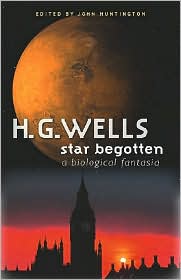
Star Begotten: A Biological Fantasia by H.G. Wells. 1937/2006. Wesleyan University Press. 172 pages.
This is the story of an idea and how it played about in the minds of a number of intelligent people. Whether there was any reality behind this idea it is not the business of the storyteller to say. The reader must judge for himself. One man believed it without the shadow of a doubt and he shall be the principal figure in the story.
Mr. Joseph Davis is feeling a bit overwhelmed by his life. His wife is pregnant with their first child, and, well, things are changing a bit too fast for him. Perhaps that is why he is so open to suggestion. Perhaps not. Maybe Davis has been waiting all his life for an idea to grab hold of him. What is this idea? How did it come to be? Well, readers are told it was "born, so to speak, one morning in November at the Planetarium Club" (37). And the idea itself, for most, would be thought silly, something easily dismissed. Yet, for a few the idea is so stubborn it is transformative.
So what is the idea? The idea that 'cosmic rays' are being sent by the Martians. And these rays are transforming humanity--changing our genes, our chromosomes. Humanity is being manipulated from afar by Martians who would design us into who they would have us to be. That more and more "Martians" are being born on Earth. Unlike Wells' previous novel, War of the Worlds, which features an alien invasion, this time the invasion is coming from within, without any ships having landed at all.
Once Davis believes this, his life will never be the same. He'll never look at his wife in the same way. (For he's convinced his wife is one of them, a Martian. And his unborn child is as well.) Davis finds a few people who agree with him, who believe, who let this idea take a hold of them as well. Though I think Davis remains the most obsessed with this idea. He uses it to explain the world around him, to explain all the rapid changes he's witnessing.
Star Begotten is an interesting read. One thing that surprised me is that these believers saw the Martians bringing sanity to the human race. They believed the Martians were older and wiser beings that would 'help' humanity. I can't say that I liked the book--not in the same way as I liked Wells' other novels. But I am glad I read it.
Man is what we've got. Humanity is humanity. Starry souls are born not made. (120)
What would a world of human beings that had, as Davis has put it, gone sane, be like? (125)
In general terms--that is what I see before us. Like a great door beginning to open. Sanity coming, sanity growing, broadening power, quickening tempo, and such a great life ahead as will make the whole course of history up to the present day seem like a crazy, incredible nightmare before the dawn. That is what I believe in my bones. (131)
© Becky Laney of
Becky's Book Reviews

Steinbeck, John. 1937. Of Mice and Men. 103 pages.
Short and oh-so-bittersweet. Of Mice and Men is the first Steinbeck that I owned. (Thanks to Jennie!) But I'm glad it wasn't the first that I ever read. (That would be Tortilla Flat.) Because knowing me, if I'd read it first, I don't know that I would have rushed out to read any of his other books. (Does that make me a horrible person?)
Though I'd not read it before, it seemed familiar to me. Without knowing it, I think I'd been exposed to the complex friendship between Lennie and George. These two migrant workers (ranchers) are coming to a new job--having fled their previous one. If you want just a plot summary, there are better places to find it. Because I can't think of ways to describe it without giving everything away.
What I liked about it...
I thought it was well-written. I thought it was complex and intricate. But it wasn't wordy. It didn't need to be in order to have substance and worth. I thought it was clever in its use of foreshadowing for the most part. I thought the characters were well developed and human. I didn't always like them. I didn't always understand them. I found a few to be too gritty. But whether I like them (or not) is not really the point. I felt that they were real. I felt for quite a few of them. These characters (some of them more than others) are tragically drawn. These were men trapped in their circumstances in some ways.
The novel made me sad, but it also made me think. It made me sad because it's a depressing book. A harsh book. A book that examines mental illness. Lennie broke my heart. I wanted there to be a different ending, a happier ending. But the truth is, in that world, in that time, there really couldn't have been a happy ending. Once things were set in motion, there was no going back. And the signs and clues are all there. George couldn't protect Lennie from Lennie. No one could.
So I thought it was good--in a way. But it was a bit too tragic for me to love. (Says the person who finds Frankenstein a comfort read.)
© Becky Laney of Becky's Book Reviews




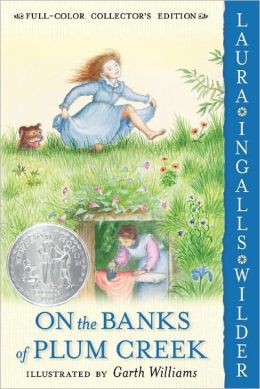
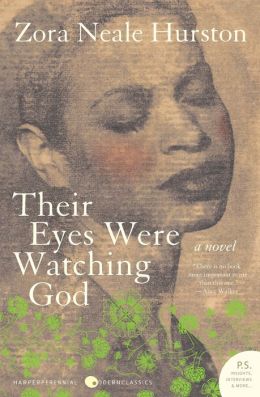
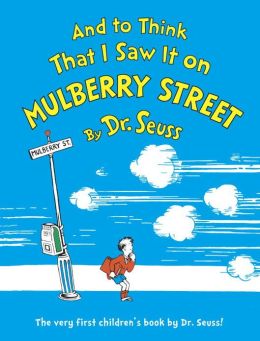


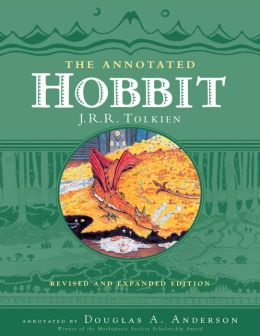
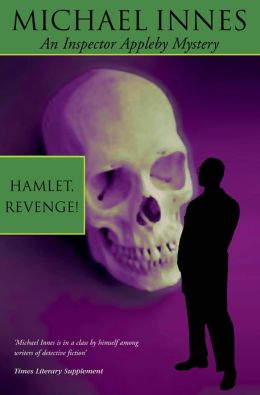

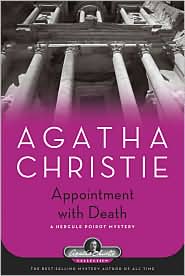
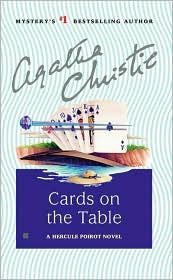



That's one awesome looking book. We read The Hobbit to our youngest daughter this spring, after watching the movie this winter. We were struck by the contrast and similarity as well!